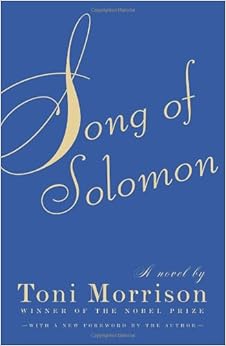I hope you’re not still stuck in Pride and Prejudice? If so, I’m sorry, it’s my fault. I never wrote wrap-up posts for PP, or Oliver Twist, or Jane Eyre. What? You didn’t know we were finished with JE? We are. See, the little pictures of the books changed in our sidebar. Don’t worry, that just happened yesterday, you haven’t missed tons. But, I am so, so sorry.
Please accept this meager post as closure on all three novels and permission to carry on.
Pride and Prejudice
We actually wrapped up Austen’s romance twice – once with the officially sanctioned WEM questions, hereafter called “The Questions,” and once on a delightfully snowy evening with hot tea, lots of books, and some Accomplished Young Women.
In our first session Jeannette wowed us with her discovery that the opening sentence “It is a truth, universally acknowledged . . .” echoed a rhetorical question by Edmund Burke in Reflections on the Revolution in France, which was a play on Thomas Jefferson’s line, “we hold these truths to be self-evident.” By which all three authors are sounding societal revolutions by calling to attention something their audiences actually do not acknowledge as truths. Who knew? Jeannette. Well, Jeannette and the book Why Jane Austen?
In our second, more casual, get-together the married among us quizzed the unmarried among us about their views on possible future Mr. Darcy’s in their own lives. Okay, fine, it was just me pushing the awkward conversation. Sorry about that, girls.
Oliver Twist
 After talk of gruel potlucks and a pickpocket training session we finally decided to once again gather around excessive amounts of cheese and chocolate to tackle The Questions.
After talk of gruel potlucks and a pickpocket training session we finally decided to once again gather around excessive amounts of cheese and chocolate to tackle The Questions.
Dickens’ use of setting to delineate between good and bad, his richly descriptive writing, and neat and tidy connections between all of the characters were all topics of discussion. We also focused a lot of our attention on Oliver’s passive deliverance from evil, a theme that appealed to our Christian souls. And you know those great foils that Jeannette mentioned in her latest posts about JE? Well, I didn’t know the proper literary term for it, but I tried to draw a few. Try these on for size:
Fagin as a foil for Mr. Brownlow
Monks for Rose Maylie
The Artful Dodger for Oliver
We agreed that we loved Dicken’s descriptive writing, and found it odd that this richly narrative work had made it’s way to the stage, before it was even completely published. Even Dickens himself did a one man show of Nancy’s murder that overtook him to the point that some of his friends felt it drew him nearer to death. I think Christine summed it up well when she said, “Let’s not go see Dickens when he comes to town.”
Jane Eyre
Jane is our most recently completed novel, and I’ll admit it was such a page turner that we’ve actually been done for a while. But there were also so many things to write about, that the blog kept rolling out JE posts, even though Jane and Rochester have been happily married for some time now.
We did fear that our enjoyment of Jane might have kept us from giving it the full scholarly dissection required by our DIY Master’s Degree, but The Questions kept us in line and forced us to put on our thinking caps. We identified motifs (weather, fire and cold), analyzed the need for Brontë’s neatly constructed conclusion, and contrasted Jane’s individual determination in contrast to Oliver’s reliance on others.
Christine raised some wonderful additional questions, that she has posed to you here as well. Please weigh in, we value your opinion.
In Conclusion
I hope you can forgive me for not wrapping up these novels earlier. My recent encounters with Hester Prynne and Arthur Dimmesdale have me thinking a lot about penance, so I wanted to get this written before I was made to wear a giant “P” on my chest for “Procrastinator.” In the future I’ll try to do better, but if you see those sidebar links change and haven’t yet read a wrap-up post, feel free to come after me with paper, scissors, and tape in hand.






